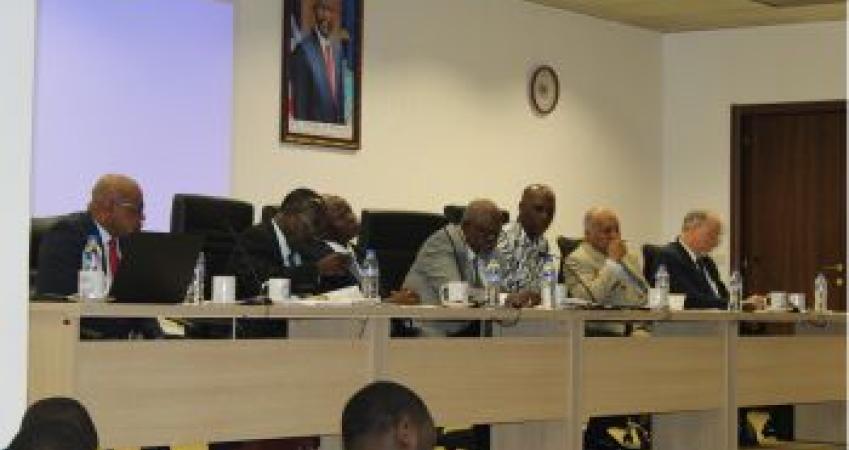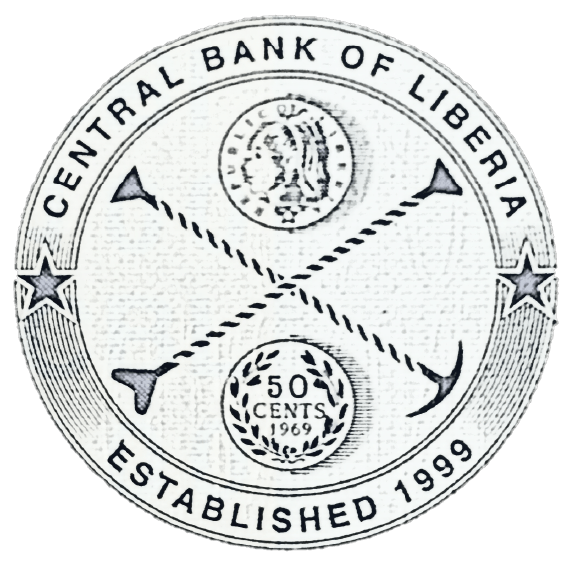
MONROVIA – Oct. 2, 2019:The Executive Governor of the Central Bank of Liberia (CBL), Hon. Nathaniel R. Patray, III, has said that for Liberia to move away from dollarization and adopt the Liberian dollar as the sole legal currency, it would depend on improving the macro-economic environment which is tied to effectiveness of monetary, fiscal and structural policies. From the monetary perspective, the Executive Governor said, such a policy shift should include a well-defined monetary policy framework, which ensures realization of price stability. Regulatory policies that incentivize the voluntary use of local currency in the economy, the Governor added, must also be adopted, as well as public sector that encourages the use of local currency.
The CBL Executive Governor spoke on Friday, September 27, 2019, during a one-day Economic Forum on “De-dollarization in Liberia and its implications for Effective Monetary Policy.” Executive Governor Patray recalled that in 2014, the Government of Liberia (GoL) developed a roadmap for the implementation of the de-dollarization strategy of Liberia. However, he noted, the roadmap was not finally approved. “As a result, the process of de-dollarization in Liberia has been done on an ad-hoc and less concerted basis,” the CBL Executive Governor noted.
He expressed optimism about the need to review the roadmap with the view of taking a strategic approach towards de-dollarization. Critical steps in this process, the Executive Governor noted, would be the declaration of the Liberian Dollar as the sole legal tender in the CBL Act and the presentation of the National Budget in Liberian dollar.
Meanwhile, panelists at the CBL Economic Forum have called for caution in the process leading towards de-dollarization. In his presentation, the Deputy Governor for Economic Policy, Dr. Musa Dukuly, said the policy to tackle dollarization must be based on a concerted and broad-based debate supported by empirical research. De-dollarization, Dr. Dukuly maintained, must be pursued with a more market-based approach rather than a forceful approach, which can be more detrimental, leading to distortion in the macroeconomic environment. Such a policy decision he emphasized, must be complemented with developments of the financial markets “as rapidly as possible if we intend to pursue de-dollarization.” Monetary policy, the CBL Deputy Governor said, will be ineffective where foreign currencies are considered as strong substitute for domestic currency. He pointed out that it is imperative to strengthen the institutional arrangement for the conduct of monetary policy, including the Liquidity Working Group and the establishment of a Monetary Policy Committee (MPC). Dr. Dukuly added that efficient liquidity management by the Central Bank is important for monetary policy operations that support the value of the Liberian dollar.
Other panelists at the Forum were former Central Bank of Liberia Executive Governor, Mr. Elie E. Saleeby; the Resident Representative of the International Monetary Fund in Liberia, Mr. Geoffrey Oestreicher; Vice President for the Liberia Bankers’ Association and Managing Director of UBA Liberia, Mr. Olalekan Balogun and the Vice President for Institutional Development and Planning at the University of Liberia, Professor Geegbae A. Geegbae. The panelists agreed that de-dollarization is not a short-term initiative. “It requires careful understanding and appreciation of the possible implications, required policies, actions and detailed planning.” “De-dollarization is not going to solve all our problems. What we need is prudent and sound fiscal discipline,” former CBL Executive Governor, Saleeby cautioned.
Last weekend’s Forum is the second held by the CBL. Coordinated by the Research, Policy and Planning Department of the Bank, the Economic Forum is intended to, among other objectives, articulate CBL’s monetary policy and regulatory functions in an effort to facilitate public feedback to the Bank’s monetary and regulatory policies. The forum was attended by over 100 participants from a cross-section of the society, including universities, the commercial banks, the business community and the media.
